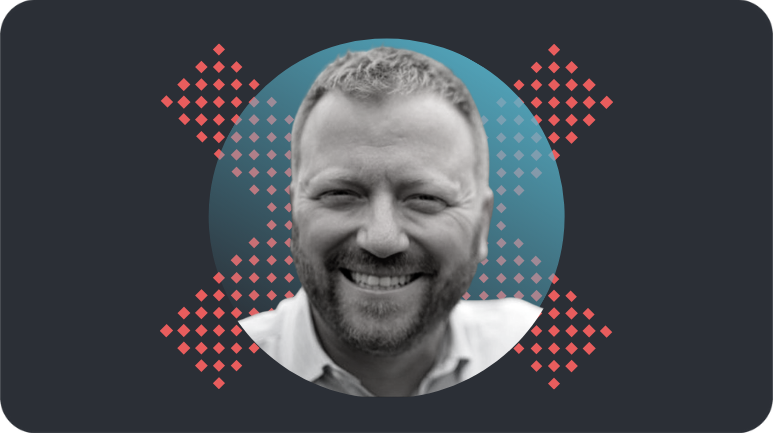Tim Simpson | Asking The Right Questions

Welcome to Allseated Exchange. Learn what’s next for event design with event industry change agents. This season focuses on helping event planners prepare for hybrid events. In this podcast summary, we’re visiting with change agent, Tim Simpson, Brand & Engagement Chief Strategist – Maritz Global Events.
Are most planners prepared to provide the experience attendees want?
According to Simpson, a soft “no”. Are people prepared? Do they have the tools? So, let’s not even go to tools, strategies, and all that yet. Let’s go back to answering a fundamental question, which is: What am I using my experiences for? Planners, strategists, organizations, whatever, are not asking the question. They should be asking: what am I actually using the experiences for, should I be using them for, and will I be using them for going forward?
Instead, people are looking at their organizations, their bottom or top lines, their objectives. They really should be saying: Hey, our people have likely changed their wants, needs. Their preferences have changed. So, let’s ask the question so that we can understand that and apply it to what we’re actually using the experiences for. Then, talk tools and strategies, Simpson advises.
Understanding is the core of design thinking. Looking at examples of client engagements that I’ve done over the last several years, 60 to 70% of the time is spent understanding [client needs]. Product innovators, product marketers, or designers – think about the product life cycle. It starts with an identified need. It doesn’t start always with an idea, but even if it does start with an idea, the idea comes from a perceived pain point or opportunity. Understand needs first, he suggests.
What Does Hybrid Mean?
I still think there’s not a clear line of sight for strategists, planners, designers, and industry-wide of what hybrid actually means. To me, a hybrid event is when it’s happening simultaneously, Simpson says. And here’s why: as a marketer, when I look at my strategy, how I’m allocating my budget dollars, and what I want to do, I’m looking at all the channels, the base and digital, to decide how to execute against my objectives in some integrated manner, Simpson says.
The idea is multichannel content, which isn’t new. It’s been around for about 15 years.
Disruption in the Events Space
There’s never been a kind of disruption. Face-to-face and digital have collided with the events space, and it’s about time.
I feel like all of my client conversations, and they’re totally valid, are at some point around: what’s next? If we’re all asking the same question, what are we really doing? What if everyone else is looking to everyone else for the answer? In the events space, especially in digital, there’s just no one-size-fits-all approach.
The best scenario is for each organization to solve how face-to-face and digital can work together, allowing them to deliver the greatest value for the people designing or delivering those experiences. Organizations have to look at their portfolio of events and do a need state assessment. What is the right mix of face-to-face and digital for my portfolio? What can I convert to digital to deliver more value to my audience 365 days of the year? What elements can transition to digital, allowing me to drive more impact?
People aren’t prepared for the way we program. The way we think about content and what we deliver in the face-to-face is going to forever change.
Lightning Round
Why do you enjoy working in events?
Simpson: It’s the opportunity to bring people together. It’s where true transformations happen.
What’s your superpower that you apply to your role?
Simpson: Listening.
What’s your favorite city you’ve visited?
Simpson: Istanbul.
What’s an event planner’s greatest strength?
Simpson: Being organized.
What’s an event planner’s greatest weakness?
Simpson: Tend to get bogged down in the details and forget the 10-, 20-, 30,000-foot view, fulfilling on business outcomes.
Outside of events, what’s the topic that planners should study to be stronger?
Simpson: 1. product marketing. 2. study audience preferences. 3. art principles: theater, poetry, painting to change the point of view.
What can planners study to increase their value?
Simpson: Be more strategic, understand business outcomes.
What’s the change you most want to see come to events?
Simpson: Protect intellectual property.
Fill in this blank. The best events …
Simpson: Transformative. You walk in one way and leave another, something that impacts you in a meaningful way.
What’s the secret to your success that anyone could do if they worked at it?
Simpson: Listening. There’s an art to being able to listen, a practice to it. It’s a craft.
Listen to the podcast.
Guest Bio – Tim Simpson
Tim is a global creative innovator and marketer with roots in a variety of industries and practices. With an MFA in Poetry and an eclectic and varied background, Tim brings something unique to any organization looking to build an iconic brand and foster smart, original programs and initiatives.
Create fully branded virtual and hybrid events with Allseated EXVO
Experience everything you love about in-person events remotely with Allseated EXVO, your in-person event’s digital twin. Explore the event floor. Listen to speakers. Browse booths. Network one-on-one in the hallway. EXVO, the next-generation hybrid, and virtual event solutions provide immersive, engaging ways to explore, connect and share. Book a Demo.

No Comments